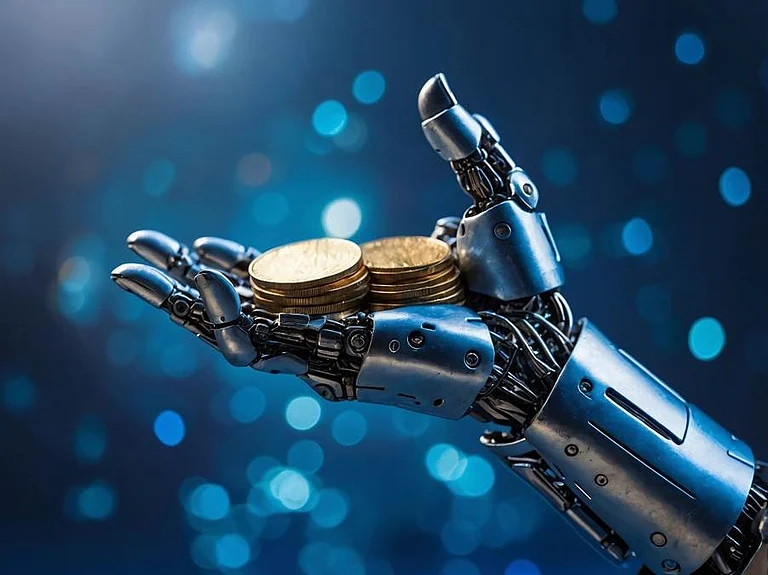Blockchain is possibly the most well-discussed 21st-century technology. Blockchain technology can transform everything from the finance system to medicine, property to supply chains. Most of us are introduced to blockchain first through cryptocurrency such as Bitcoin or Ethereum, but blockchain is bigger than cryptocurrency. To understand how to comprehend what blockchain is, does, and why it's important is essential for anyone who wishes to thrive in the current digital economy. In the meantime, for anyone who's interested in Making Money with Cryptocurrency, blockchain is still essentially the foundation through which this is achievable.
What Is Blockchain?
Blockchain is an online ledger book where transactions are kept in a safe, open, and decentralized manner. Rather than using a central authority such as a bank or government, blockchain stores information distributed across a network of computers. A "block" of data contains all the transactions that are uploaded onto it after verification. Blocks are then linked together in chronological order to create a "chain," hence the term blockchain.
The defining feature of blockchain is that it cannot be altered. Once data has been entered into the chain, it cannot be manipulated or erased. This makes the system extremely secure and trustworthy, curtailing fraud, manipulation, or any alteration. In short, blockchain provides a space where trust is obtained through technology and not the middleman.
How Does Blockchain Work in Practice?
Blockchain operates primarily through a decentralized network of nodes. All members of a network are able to view the ledger and verify transactions on their own. For instance, when someone triggers a transfer of cryptocurrency, the nodes verify the transaction through computationally heavy math proofs. The transaction is inscribed and placed within the chain following verification.
The system requires consensus mechanisms such as Proof of Work (PoW) or Proof of Stake (PoS). They compel all the parties involved to authenticate the validity of transactions without an authority. Although this might sound cumbersome, the end result is straightforward: blockchain makes transactions secure, quicker, and more transparent compared to the traditional systems.
Why Is Blockchain Considered Revolutionary?
Blockchain is revolutionary in that it does away with middlemen. In the old systems, middlemen such as banks, brokers, or notaries have a central position to verify and validate transactions. Blockchain makes it possible for individuals and institutions to make direct transactions and save time and money.
Other than that, its decentralization keeps it from censorship and corruption. Wherever banks are unstable or corruption is prevalent, blockchain can bring stability and fairness. That's why many people use it increasingly in sectors all over the world. Blockchain information is essential to Making Money with Cryptocurrency because all cryptocurrencies rely on it.
While cryptocurrency brought blockchain into the limelight, the tech is increasingly being applied across a broad spectrum of industries. In supply chains, blockchain traces products from production to delivery, ensuring transparency and anti-counterfeiting. In medicine, blockchain protects patient records but makes authorized stakeholders cost-effectively accessible to information. Governments also now explore using blockchain towards secure voting systems that might make elections transparent and tamper-proof.
Financial institutions, naturally, are one of the biggest winners. Blockchain simplifies cross-border payments, reduces expensive fees, and opens up more inclusive financial systems for the unbanked. All these use cases show why blockchain is so much more than simply a tool for cryptocurrency-making money.
The Connection Between Blockchain and Making Money from Cryptocurrency
The advent of such cryptocurrencies as Bitcoin, Ethereum, and more than a thousand virtual currencies has determined how blockchain makes earning in new ways possible directly. The digital money would be without security and credibility so essential for it to be embraced on such a large scale if it were not for blockchain. Blockchain makes owner records secure, transactions transparent, and coins not double-spent.
For individuals who wish to Make Money with Cryptocurrency, blockchain provides several avenues. From coin trading on platforms, through engagement with decentralized finance (DeFi) platforms, to token mining or staking, they all rely on blockchain technology. More recently conceived frauds like play-to-earn games and non-fungible tokens (NFTs) operate on the basis of blockchain.
The Benefits of Blockchain to Individuals and Businesses
Transparency is probably blockchain's strongest asset. Everything is committed to writing on the public ledger, and that establishes trust among users. That is particularly important in financial transactions, where trust is already lost.
Safety is yet another significant advantage. Because the ledger is spread over numerous computers, it is very hard for hackers to infiltrate the network. Even in case of one node being infiltrated, the rest of them keep working and preserve the chain intact.
Aside from that, blockchain also saves costs by eliminating the middlemen. Companies are able to conduct cross-country transactions more quickly and at lower costs, and individuals are able to utilize channels such as Making Money with Cryptocurrency without having to access banking networks.
Challenges and Limitations of Blockchain
And although it is a fantastic technology, blockchain is not without problems. Scalability is still one of its largest, as most mainstream blockchains such as Bitcoin or Ethereum are congested and have slow speeds and inflationary fees. There are also some environmental issues, particularly with Proof of Work systems that use so much energy.
Regulatory uncertainty is also of concern. Governments across the world continue to struggle with how to regulate blockchain-based systems without suppressing innovation. Such uncertainty is dangerous for businesses and individuals making financial transactions using blockchain.
But through continuous research and development, all of these issues are being relieved. More modern blockchains are adopting low-energy consumption consensus algorithms and designing for higher volumes of transactions, and the regulators are developing clearer frameworks to enable safe onboarding.
The Future of Blockchain
Blockchain's future is bright. Increasing industries are embracing the technology, and its application in day-to-day life will continue to increase. In banking, blockchain can potentially replace almost all the conventional banking functions. In the government, it can make everything transparent and remove corruption. In the art world, it can make inventors and artists sell their invention as a digital token directly.
For Making Money with Cryptocurrency enthusiasts, the technology to remember is blockchain. Whether it is through investment, decentralized apps, or emerging themes such as Web3 and the metaverse, blockchain will turn tomorrow's internet opportunities into a game-changer.
Conclusion
Blockchain is not a fad or a buzzword. It is an entire paradigm shift in dealing with data and transactions in the digital age. By cutting out the middlemen, providing transparency, and verifying transactions, blockchain gives us the foundation upon which to create trust in a decentralized world. Its applications range far beyond cryptocurrencies, but for those thinking about Making Money with Cryptocurrency, it is the most applicable technology to learn about.
As governments begin to adopt blockchain technologies and industries shift, its relevance will yet again expand. To learn blockchain today is not only to keep up with the times, but also to prepare oneself for an emerging economy where decentralization, openness, and trust are reshaping the economic cosmos.





















